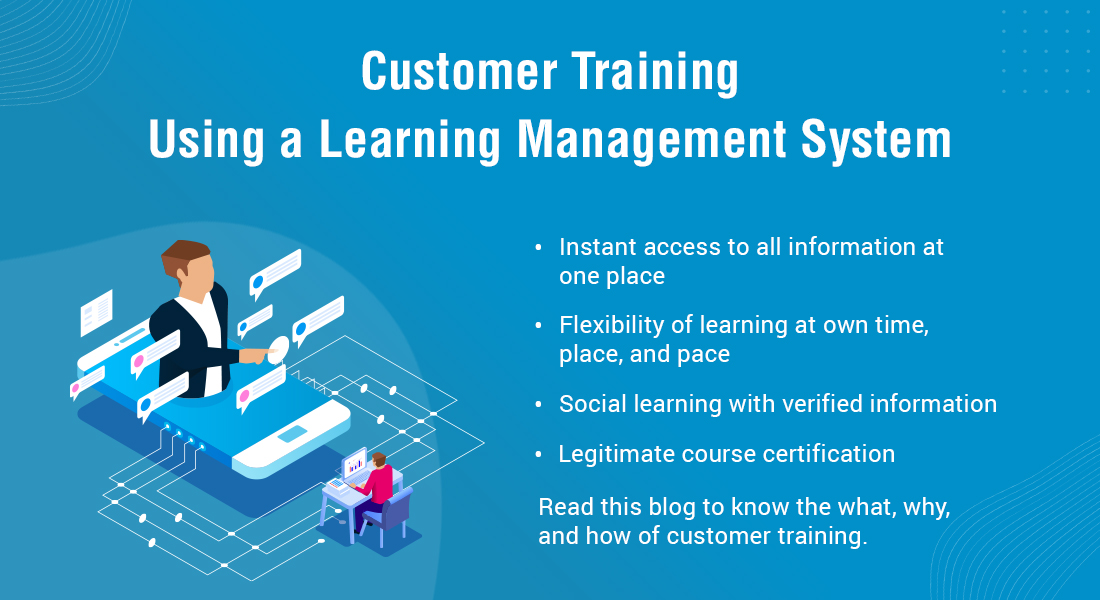How to Build Impactful Product Training for Customer-Facing Teams?

The frontline of any customer-centric organization is its customer-facing team. This diverse group, encompassing sales representatives, service technicians, and customer support executives, plays a pivotal role in shaping customer experiences. Their interactions directly influence customer satisfaction, brand loyalty, and ultimately, the success of your business.
But how do you equip these teams with the knowledge and skills they need to consistently deliver exceptional service and drive positive outcomes? The answer lies in a well-designed and impactful product training program.
Empower your customer-facing teams with impactful product training!
The benefits of the training include:
- Boosted Customer Satisfaction: Empowered teams can resolve issues effectively, answer questions confidently, and provide accurate solutions, leading to happier customers.
- Increased Sales Conversions: Well-trained reps can effectively showcase product value, address customer needs, and close deals with confidence.
- Enhanced Brand Reputation: Consistent messaging across all touchpoints builds trust and reinforces your brand's image as a reliable, knowledgeable leader.
Why Product Training Matters for Customer-Facing Teams?
Here's why investing in product training goes a long way:
- Enhanced Customer Support: In-depth knowledge of your product empowers customer support teams to troubleshoot issues effectively, answer questions confidently, and provide accurate solutions. This translates to quicker resolution times and a more positive customer experience.
- Effective Sales Conversations: Highly trained sales reps can effectively articulate the value proposition of your product, address customer needs, and showcase features that make a real difference. This fosters trust and confidence, leading to more successful sales conversations and increased conversions.
- Consistent Messaging: A well-trained team is on the same page when it comes to product knowledge. They can communicate information consistently across all touchpoints, avoiding confusion and ensuring a seamless customer journey.
What are the Key Topics Under Product Training?
A comprehensive product training program should cover a range of essential aspects:
- Product Knowledge Training: This forms the foundation, delving into features, benefits, use cases, and technical specifications. Training should cover both basic and advanced aspects of the product, ensuring a well-rounded understanding.
- Communication Skills: Masterful communication is vital for customer-facing teams. Training programs should focus on active listening, clear and concise articulation, and building empathy to foster genuine connections with customers. Role-playing scenarios can provide a valuable platform for practice and honing communication skills in a safe environment.
- Negotiation Skills: For sales teams, mastering negotiation skills is crucial. This involves effectively handling customer objections, identifying win-win solutions, and closing deals with confidence. Training can equip them with the tools and techniques to navigate negotiations successfully, maximizing positive outcomes.

→ Download Now: Online Learning Services: A Revolution in Corporate Training [eBook]
How to Choose the Right Format for Product Training?
The delivery format of your training program plays a significant role in engagement and knowledge retention. Consider incorporating a mix of these approaches for a well-rounded learning experience:
- Classroom Training: Instructor-led sessions are ideal for introducing foundational product knowledge and providing clear explanations. Interactive activities and group discussions can keep participants engaged and facilitate deeper understanding.
- eLearning Modules: Online courses offer flexibility and cater to different learning styles. Incorporating multimedia elements like videos, animations, and interactive quizzes can make the learning process engaging and effective.
- On-the-Job Training (OJT): Shadowing experienced team members during real-world customer interactions allows trainees to observe best practices in action. This hands-on approach provides valuable context and fosters practical application of learned skills.
- Role-Playing Workshops: Simulating real-life customer scenarios like product demonstrations, objection handling, and resolving customer issues allows trainees to practice their skills in a controlled environment. This promotes confidence and prepares them to handle diverse situations effectively.

Best Practices for Effective Product Training
Here are some key best practices to consider when developing your product training program:
- Customize Content: Tailor your training materials to accommodate the specific needs and roles of your team members. For example, sales reps might require a deeper understanding of product pricing and competitor comparisons, whereas customer support agents might benefit from focusing on troubleshooting techniques.
- Continuous Learning: The product landscape is constantly evolving, so ensuring regular product knowledge updates is crucial. Regular knowledge refreshers and workshops will keep your team on top of new features, functionalities, and industry trends.
- Feedback Loop: Gather continuous feedback from your customer-facing teams on the effectiveness of the training program. This valuable input allows you to identify areas for improvement, address knowledge gaps, and ensure your program remains relevant and impactful.
- Certification Programs: Consider implementing product knowledge certification programs. This provides an opportunity to recognize and reward employees who excel in product knowledge, fostering a culture of continuous learning and motivation.
How to Level Up Your Product Training? [Video]
The Power of Well-Trained Teams: Conclusion
Investing in product training for your customer-facing teams is an investment in your company's success. A well-trained team is equipped to navigate customer interactions with confidence and competence. This translates to increased customer satisfaction, improved sales conversions, and ultimately, a thriving business. By implementing these steps and best practices, you can create a winning product training program that equips your customer-facing teams with the tools and knowledge they need to be brand ambassadors and drive positive customer experiences.
Ready to take your product training to the next level?
Online learning solutions offer a dynamic and engaging approach to training your workforce. Download our eBook, "Online Learning Services: A Revolution in Corporate Training," to discover how eLearning can help:





